基于金属有机多面体的多孔材料的制备及其性能研究毕业论文
2020-06-18 19:57:14
摘 要
金属有机多面体(MOP)由于其有趣的结构而引起了极大的关注。然而,MOP的应用受到两个缺点的严重阻碍,即低分散性和差的稳定性。在这里我们报告四个MOP(由铜的双轮结构和羧酸化合物构造),通过双溶剂法将它们引入到腔结构的介孔二氧化硅SBA-16材料来同时克服这两个缺点。通过恰当的设计,MOP的尺寸恰好在腔的尺寸和SBA-16的入口之间,因此MOP分子被限制在腔中。这导致形成具有高效分散度的离散的MOP,从而得到很多活性位点。因此,对二氧化碳和丙烯的吸附能力以及开环时的催化性能远优于团聚的MOP。更重要的是,密闭空腔中的MOP的结构和催化活性在暴露于潮湿环境后保持良好,而这些团聚的MOP的结构和催化活性严重降解。因而制备具有高分散和高稳定的MOPs极其关键。
介孔氧化硅材料由于具有高的水热稳定性、有序的孔道结构而备受青睐。在众多的介孔氧化硅中,SBA-16的结构由孔道和孔穴组成。每个孔穴与八个孔道相连,孔穴的直径大约9nm,而孔穴的孔道直径大约2nm。论文的研究内容包括以下步骤:
以MOP为模板剂,进而在高温下除去MOP制备介孔二氧化钛材料;用红外,广角,BET,电镜等对产物进行表征,最后研究材料的吸附脱硫性能。合成步骤简单,而且还能得到比表面积较大的介孔材料,同时还能得到分散的CuO材料,可以应用于吸附,脱硫等诸多领域。
关键词: 金属有机多面体 介孔二氧化钛
Preparation of Porous Titanium Dioxide Based on Metal Organic Polyhedron
ABSTRACT
Metal organic polyhedra (MOP) has attracted much attention due to its interesting structure. However, the application of MOP is seriously hampered by two disadvantages, namely low dispersion and poor stability. Here we report four MOPs (constructed from copper bicomponent and carboxylic acid compounds), which are introduced into the mesoporous silica SBA-16 material by the dual solvent method to overcome these two disadvantages simultaneously. With proper design, the size of the MOP is just between the size of the cavity and the entrance of the SBA-16, so the MOP molecule is confined in the cavity. This results in the formation of discrete MOPs with high degree of dispersion, resulting in a number of active sites. Therefore, the adsorption capacity of carbon dioxide and propylene and the catalytic performance at open ring are far superior to the agglomerated MOP. More importantly, the structure and catalytic activity of the MOP in the closed cavity remains well after exposure to humid conditions, and the structure and catalytic activity of these agglomerated MOPs are severely degraded. And thus the preparation of highly dispersed and highly stable MOPs is extremely critical.
Mesoporous silica materials are favored because of their high specific surface area and high hydrothermal stability. Among the many mesoporous silicas, SBA-16 has a typical bottleneck structure, its structure consists of holes and holes, each hole and eight holes connected to the hole diameter of about 9nm, and connect the hole diameter of the hole is about 2nm. The main contents of this paper include the following parts:Using MOP as template, and then removing MOP at high temperature to prepare mesoporous titania material; The products were characterized by IR, wide angle, BET, electron microscopy and so on. Finally, the desulfurization performance of the materials was studied.The synthesis step is simple, the mesoporous material with larger specific surface area can be obtained, and the dispersed CuO material can be obtained, which can be applied to many fields such as adsorption, desulfurization and so on.
KEYWORDS: Metal-organic polyhedra Porous Titanium Dioxid
目录
摘要 I
ABSTRACT II
第一章 绪论 1
1.1 金属有机多面体的概述 1
1.2 金属有机多面体的分类 1
1.2.1 柏拉图式金属有机多面体 2
1.2.2 阿基米德式金属有机多面体 2
1.3 基于Paddle-Wheel次级结构单元的金属有机多面体 3
1.4 金属有机多面体的应用 3
1.4.1 分子传感 3
1.4.2 催化性能 4
1.4.3 气体吸附和分离 4
1.4.4 作为超分子结构单元构筑金属有机骨架 4
1.5 金属有机多面体的合成方法 5
1.5.1 定向粘合法 5
1.5.2 对称交互法 5
1.5.3 双金属模块法 5
1.6 介孔氧化钛简介 6
1.7 介孔二氧化钛的应用方向 6
1.7.1 光催化剂 7
1.7.2 涂料 7
1.7.3 锂离子电池技术 7
1.8 本论文的研究意义和内容 8
第二章 实验与表征方法 9
2.1 实验试剂与仪器 9
2.2 实验方法 9
2.2.1 MOP-OH的制备 9
2.2.2 MOP-OH@TiO2复合物的制备(乙醇作溶剂) 9
2.2.3 MOP-OH@TiO2复合物的制备(甲醇作溶剂) 10
2.3 Mop的表征方法 10
2.3.1 X射线粉末衍射 10
2.3.2 傅里叶变换红外光谱 10
2.3.3 比表面积和孔结构 10
2.3.4 透射电镜和扫描电镜 11
第三章 样品分析 12
3.1 傅里叶变换红外光谱 12
3.2 比表面积和孔结构 13
3.3 X射线粉末衍射 15
3.4 透射电镜 15
3.5 吸附脱硫 16
3.6 本章小结 16
第四章 结论与展望 17
4.1 结论 17
4.2 展望 17
参考文献 18
致谢 20
第一章 绪论
近年来,科学家重点关注了借助超分子建筑块为结构单元有目的的设计合成具有特定拓扑的金属有机材料。这也是合成固态材料的通用方法。超分子构造过程中的相互作用大致有3类。如通过氢键作用的结构;通过静电、亲疏水及分子间作用的结构等等。因此MOMs具有可控性,通过改变金属离子和配体的种类,可以合成不同尺寸、不同构型和不同功能的超分子[1]。
1.1 金属有机多面体的概述
金属有机多面体是由金属离子和有机配体在一定的条件下通过自组装形成的一类具有离散结构的分子[2]。目前,许多科学研究者在设计和自组装具有特定结构的金属有机多面体材料领域进行了研究工作,也取得了一定的进展。在总结了之前的研究成果,人们对金属配位作用的合成方法主要采取了三种方式。例如定向结合,对称性匹配和分子镶嵌板。
经过上述三种方式对MOPs材料进行构筑,改变了MOPs在合成过程中难以复制的弱点,使得MOPs材料逐渐引起科学家的关注。MOPs材料拥有无机沸石类聚合物和有机复合高分子聚合物的特点,而且合成条件比较温和。因此,MOPs不仅在传感、非线性光学材料、磁性材料、催化材料和在气体吸附分离作为储存媒介等领域有广泛的应用前景,而且在清洁能源和生物医学成像等新领域也有相当不错的发展潜力[3]。
1.2 金属有机多面体的分类
在自然界中,人们对于组装一些相对复杂的结构面临着巨大的挑战。通常人们在合成这些具有拓扑结构材料的时候,首次合成并不是通过设计得到的,而往往是通过偶然得到再经过人们的总结从而设计出所需要的结构。到现在为止,通过不同的设计方法的不断发展,科学家们得到了很多高对称性的结构。
1.2.1 柏拉图式金属有机多面体
世界上最简单和最被认可的柏拉图式金属有机多面体(正多面体)只有5种。例如四面体、八面体、六面体、十二面体以及二十面体(图1–1)。我们可以看出它们都是由一种具有相等的角度和边长的多边形和相同的顶点组成。这5种多面体属于同一种高对称的点组,如四面体的、二十面体的和八面体的点组[4]。
相关图片展示:
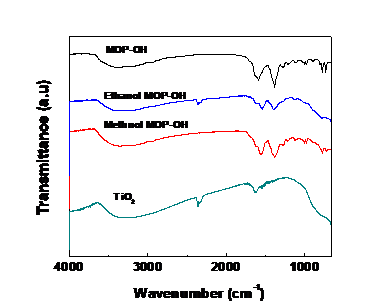
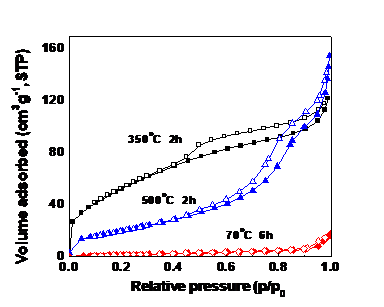
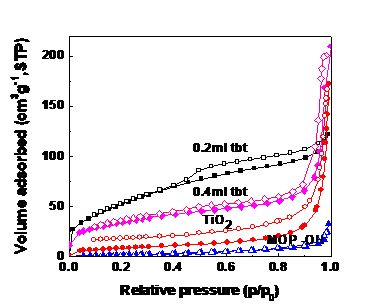
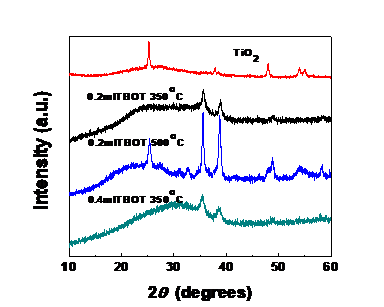
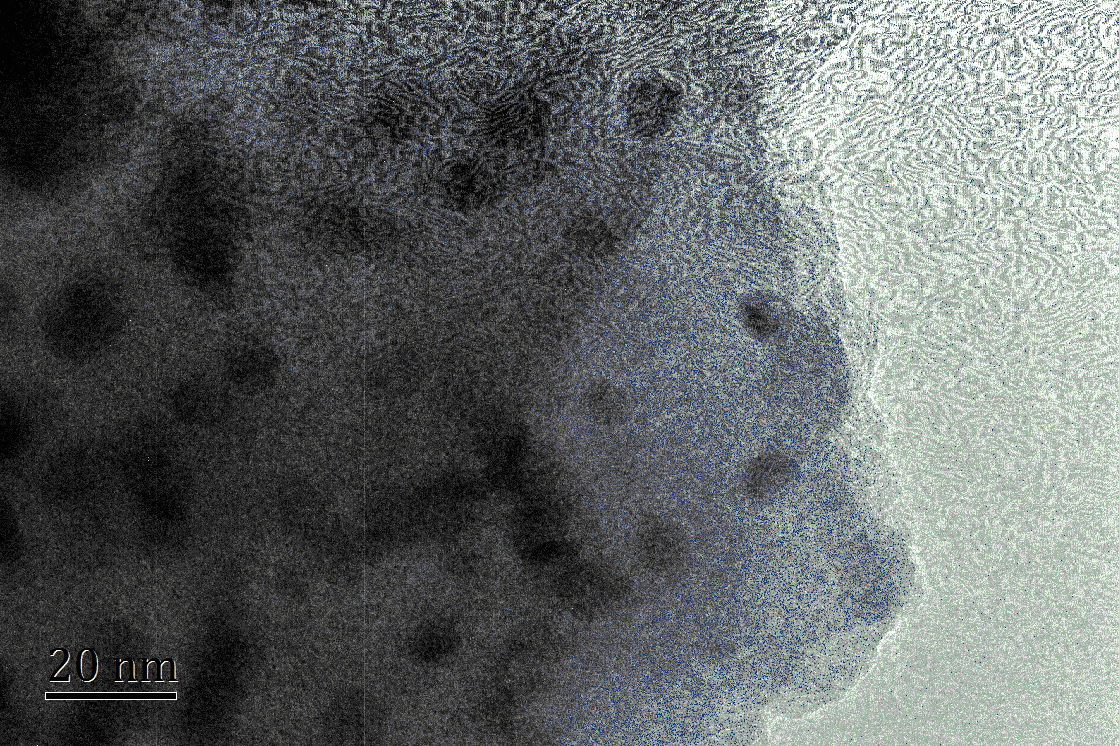

课题毕业论文、开题报告、任务书、外文翻译、程序设计、图纸设计等资料可联系客服协助查找。



